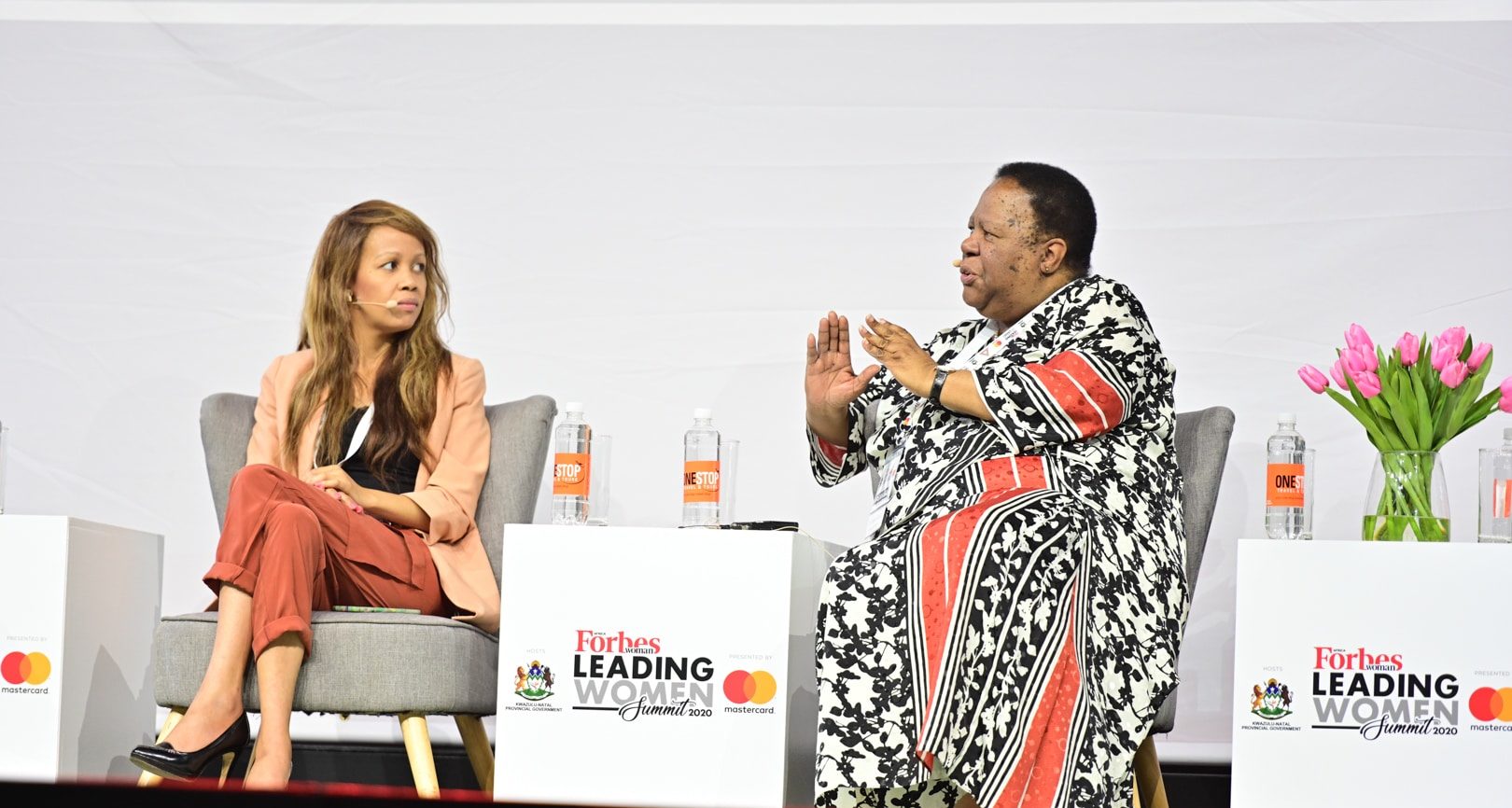At the 2020 FORBES WOMAN AFRICA Leading Women Summit in Durban on March 6, for the first time on the same stage, South Africa’s minister Dr Naledi Pandor and her entrepreneur-daughter Dr Aisha Pandor revealed their secrets to continued success.
It’s not often we get to witness a famous mother and daughter on the same stage sharing their lessons on success and legacy. And this duo was certainly doing so for the first time.
At the 2020 FORBES WOMAN AFRICA Leading Women Summit in Durban, South Africa, on March 6, Dr Naledi Pandor, the country’s Minister of International Relations and Cooperation, and Dr Aisha Pandor, CEO and Co-founder of SweepSouth, engaged in a stimulating and thought-provoking panel discussion titled ‘How To Raise A CEO’.
“Thank you very much to FORBES WOMAN AFRICA for the opportunity to be here with Aisha. I don’t often get a chance to see her. So it’s lovely to see you Aisha,” opened the much-loved minister, to laughter from the audience in the large ballroom at the international convention center in Durban.

The panel’s moderator Gugu Mfuphi began with a comic disclaimer that Dr Naledi has four children and that Dr Aisha is certainly “not the favorite”. As the audience lapped up the moment, the minister, with a broad smile, shook her head in disagreement, saying: “They are all my favorite!”
“It was very clear – just nurture them in a wide range of things. That’s really important.”
– Dr Naledi Pandor
There was more laughter and life lessons in store, as the audience got to see the lighter side of the minister.
“As a mother, what I tried to do is nurture her where she wished to grow, but also, to encourage her to have as much experience in a range of areas as possible. We would encourage academic work. We also encouraged sport, creativity; all my kids had to do speech and drama at school, it was very clear – just nurture them in a wide range of things. I think that’s really important,” said the senior Pandor.

While she mapped out her daughter’s career path, she later came to an important realization.
“She was really good in science. I love science but I’m bad at it. So I thought ‘God gave me Aisha, she’s going to achieve you know, because she was good at math and science’. And so she did very well at school, and went into the science faculty, did very well at the undergraduate level, was invited to carry on with an honors degree. She did very well and was asked to proceed to her Masters prior to finishing the honors. So, I was over the moon. It’s my dream, right? She continues from Masters into the PhD track, and completes her PhD with much fanfare and celebration on our part because now I’m thinking ‘here’s our senior research partner’. All these things I’ve been talking about science and technology, my child is going to live the example. Well lo and behold…”
The minister went on to offer more life-changing anecdotes about her daughter.
“One day, Aisha comes with her husband – who happens to be a software engineer – they tell us about this plan they’ve cooked up; that they’re going to start this tech start-up. And so I say to her ‘what about your research career?”. And she goes ‘this is what I want to do”. I say ‘what, but you’ve got a PhD, you could be a professor at the University of Cape Town, what are you talking about?’ And she says, ‘no mom, we’ve designed this program, we’ve started our company’. They began to tell me and her father all about it. Both of us were livid. I must tell you we thought ‘these kids are going to be a problem for us, they’ll be coming to beg for money and everything’. Few years down the line, and here we are! I’m very proud of her. I’ve learned my lesson. Let your children go where they wish to go!”

Aisha, along with her husband, learned quickly that being a CEO will require significant sacrifice.
“I lived with my parents for probably four years after starting our business. We eventually ended up selling everything we had, to fund the business,” she said.
“Our parents brought us up to have the right moral compass. Education and the idea of learning and knowledge have been very important. My parents gave us freedom in the decisions we made based on the fact that they knew they had given us that grounding.”
Watch the full panel discussion below:
